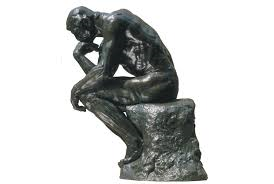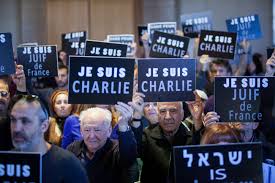Since Israel’s independence in 1948, Israel has won 12 Nobel Prizes, an incredible total for such a small country. When considering that over those 70 years the country had to fight numerous wars, absorb millions of immigrants and develop an economy, the total is even more remarkable.
Even when backing out Nobel Prizes awarded for peace, which is the most dubious category as it is more aspirational and political than the other categories, Israel has still won 9 prizes. That puts the country as a top five winner of Nobel Prizes per capita.
| Rank | Country | Nobel Prizes since 1948 | 2017 Population (m) | Nobels per Capita | Non-Peace Prizes | Nobels per Capita |
| 1 | Sweden | 19 | 9.90 | 1.92 | 18 | 1.82 |
| 2 | Switzerland | 15 | 8.37 | 1.79 | 15 | 1.79 |
| 3 | Norway | 8 | 5.23 | 1.53 | 8 | 1.53 |
| 4 | United Kingdom | 93 | 65.64 | 1.42 | 86 | 1.31 |
| 5 | Israel | 12 | 8.55 | 1.40 | 9 | 1.05 |
| 6 | Austria | 9 | 8.75 | 1.03 | 8 | 0.91 |
| 7 | Ireland | 6 | 4.77 | 1.26 | 4 | 0.84 |
| 8 | Hungary | 8 | 9.82 | 0.81 | 8 | 0.81 |
| 9 | Germany | 60 | 82.67 | 0.73 | 58 | 0.70 |
| 10 | Denmark | 4 | 5.73 | 0.70 | 4 | 0.70 |
The country also proves itself to be a leader in the commercial application of science and technology. Israel ranks as number 8 regarding patent filings per capita.
| Rank | Country | 2016 patent filings | 2017 Population (m) | Filings per capita |
| 1 | Switzerland | 47,000 | 8.37 | 5,614 |
| 2 | South Korea | 233,786 | 51.25 | 4,562 |
| 3 | Japan | 456,467 | 127.00 | 3,594 |
| 4 | Sweden | 23,453 | 9.90 | 2,368 |
| 5 | Netherlands | 39,058 | 17.02 | 2,295 |
| 6 | Germany | 177,073 | 82.67 | 2,142 |
| 7 | Denmark | 11,727 | 5.73 | 2,046 |
| 8 | Israel | 15,108 | 8.55 | 1,768 |
| 9 | United States | 521,802 | 325.70 | 1,602 |
| 10 | Austria | 13,869 | 8.75 | 1,586 |
Not surprisingly, there is a strong correlation to the science awards and Nobel prizes in science to the educational level of the population. Israel ranks #2 in terms of the percent of the population with a tertiary education.
| Rank | Country | % Population with Tertiary education |
| 1 | Canada | 51% |
| 2 | Israel | 46% |
| 3 | Japan | 45% |
| 4 | United States | 42% |
| 5 | New Zealand | 41% |
| 6 | South Korea | 40% |
| 7 | United Kingdom | 38% |
| 8 | Finland | 38% |
| 9 | Australia | 38% |
| 10 | Ireland | 37% |
The statistics above are simple numerical facts. Various organizations use these numbers and others to provide their views of the “qualitative” nature of the country by different measures.
For example, The Heritage Foundation produced its 2018 freedom ranking of 180 countries. It used measures such as the rule of law, property rights and openness of its markets to score each country. Israel ranked #31, ahead of some of the countries listed in the statistical tables above such as Austria #32 and Hungary #55, but behind the others. The Economist had a similar ranking, placing Israel as tied for #30. This is likely due to Israel’s hostile neighbors, many of which do not recognize its right to exist and are at an official state of war, which compromises some of Israel’s freedoms. This dynamic is in contrast to the other countries on the list, that have not fought four wars and multi-year mass riots since the turn of the century.
However, it is interesting to note that several of the countries that lead in science do not just lead in education, but have a mandatory military draft like Israel, including: Denmark; South Korea; Norway and Switzerland. The book Start-up Nation, attributes much of Israel’s economic success to the training a person gets in the army. Those skills are not limited to technical training, but also leadership and a sense of communal belonging. Perhaps countries like Denmark and Switzerland have similarly benefited from military training.
But none of those other countries have faced the missiles, gunfire, bombings, the wars and riots that Israel has had to endure. Switzerland continues to reduce the size of its army and holds a vote every few years to abolish conscription. It views the army as a holdover of a different time. Yet Israelis know that enemies that seek the country’s destruction are just miles away. Today.

Israeli soldiers at Har Herzl in Jerusalem
And so it is perhaps appropriate to pause on Yom Hazikaron, the day of remembering the fallen Israeli soldiers, to recall not just their sacrifice, but to honor them with a helek, a portion of every Nobel Prize, every doctorate, every award won and every IPO completed by each Israeli since the country’s founding. Every soldier has earned a part of it too.
Related First.One.Through articles:
Israel, the Liberal Country of the Middle East
The Color Coded Lexicon of Israel’s Bigotry: It’s not Just PinkWashing
Israel: Security in a Small Country
Subscribe YouTube channel: FirstOneThrough
Join Facebook group: FirstOne Through Israel Analysis



